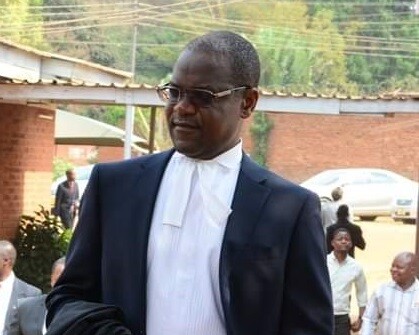
President Peter Mutharika’s lawyer, Samuel Tembenu, says the Constitutional Court judgement contains a contradiction which does not give anybody assurance that it is a judgement that must be trusted.
Tembenu made the remarks in his submissions during the presidential elections appeal before the Supreme Court of Appeal this morning.
The appeal before the seven-member panel of the Supreme Court is being heard over two months after the Constitutional nullified the 2019 presidential elections.
Tembenu in his submission noted that alterations and use of tippex, which were considered as irregularities, formed the basis for the nullification and this, he argued, was wrong.
He said, in the judgement, there are contradictory statements by the Constitutional Court.
Said Tembenu: “One place they say that the tippex and alterations was a scheme to mask the taking away of votes from whoever and benefiting the second respondent (President Peter Mutharika). There was no evidence that votes were taken from whoever and given to the second respondent.
“Then they go on to say that ‘having examined all of this we do not find any evidence of any rigging’.”
On the Constitutional Court’s ruling that there was undue return, Tembenu noted that the term implies that it is the issue of numbers.
He argued that there was no evidence before that court to justify that somebody who should not have won was declared as a winner. He added that evidence would have shown how the numbers displaced the person who actually won the elections.
“In this case, there was no point when the figures were challenged to show that anybody was disadvantaged and in the process did not get elected,” said Tembenu.
He argued that this does not give anybody confidence to trust the Constitutional Court’s judgement.
Tembenu also faulted the Constitutional Court for ordering Parliament to pass laws in relation to the ruling, saying it is the Executive which initiates legislation.
Chief Justice Andrew Nyirenda is heading the panel of judges hearing the case. The other judges include Lovemore Chikopa, Edward Twea, Anaclet Chipeta, Anthony Kamanga, Frank Kapanda and Rezine Mzikamanda.














